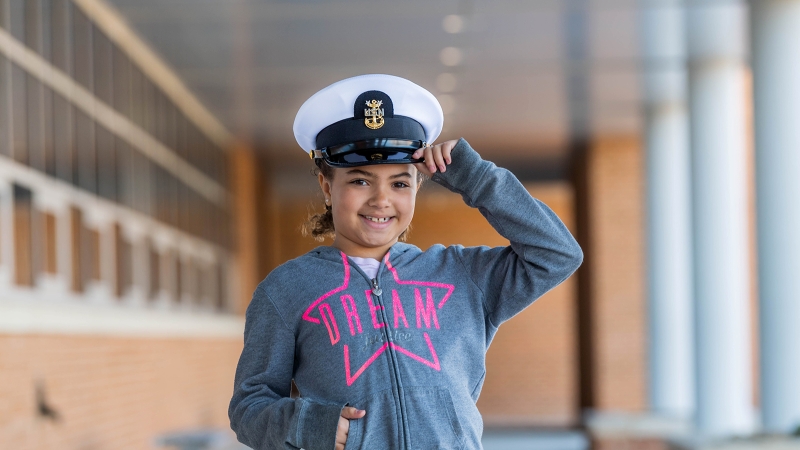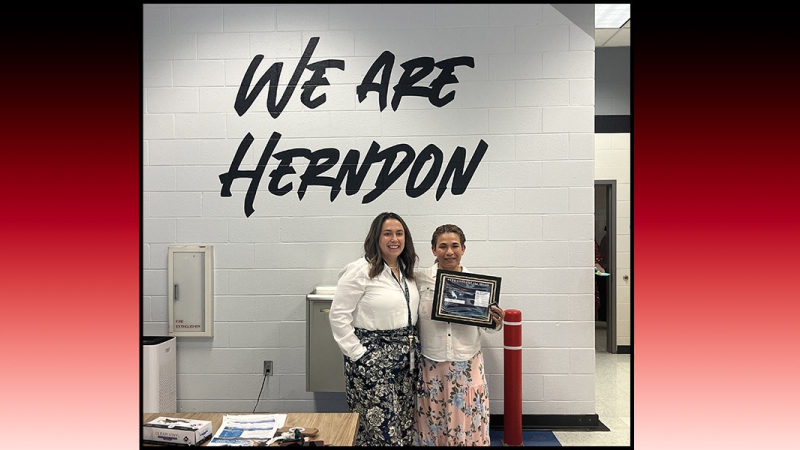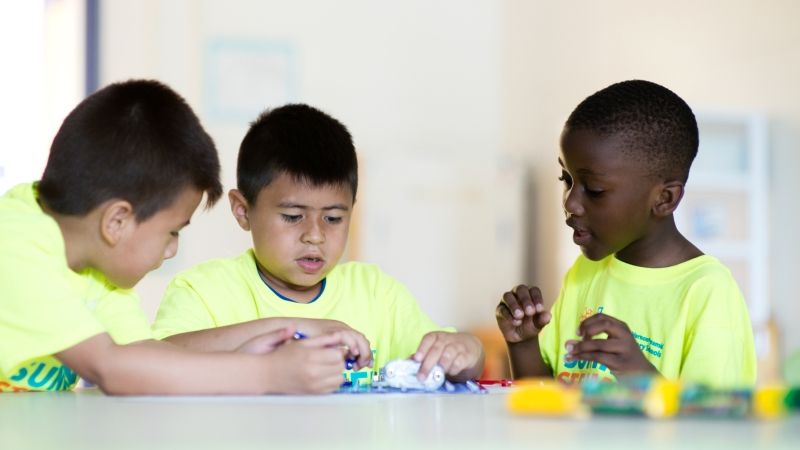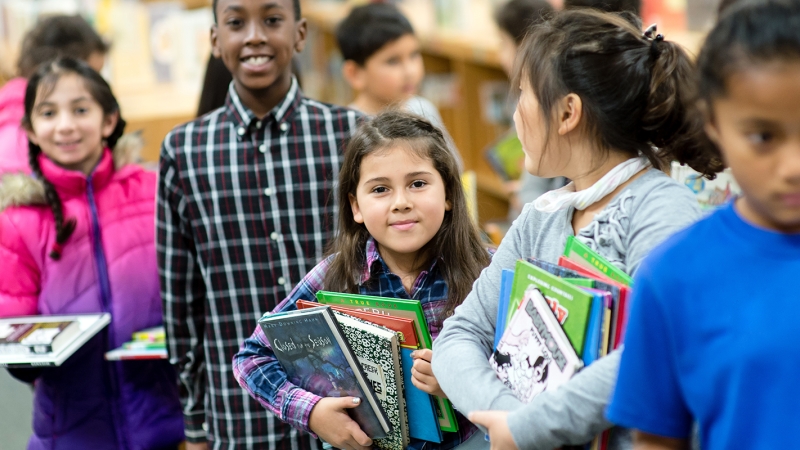
Fairfax County Public Schools Welcomes First-in-Nation Neurodiversity Specialist Amongst a Trio of Hires to Support Students Who Learn Differently
A recognition that the needs of neurodivergent students have been historically overlooked in U.S. public education has led to three innovative new hirings by FCPS, as the division works to ensure every student reaches their own unique potential.
Kristen Haynor, stepped into her dream role advocating for our neurodiverse students this school year. She is believed to be the first Neurodiversity Specialist in a U.S. K-12 public schools setting, and she hopes her appointment will inspire other districts to follow suit.
Haynor was joined recently by Nonye Oladimeji, who began as the division’s - and Virginia’s - first public school - Twice Exceptional (2E) Education Specialist. Those considered 2E students are identified as academically gifted in one or more areas of exceptionality and also identified by Federal/ state eligibility criteria to have a disability or multiple disabilities.

In addition, Rachel Rubio serves as the new FCPS Dyslexia Specialist, a highly specialized role dedicated to the reading and writing disability that affects 20% of the population. Without teachers having the tools to recognize the signs, it can often go undiagnosed.
All three positions reflect FCPS’ understanding that there are many different, yet equally valid, ways to learn and that we owe it to our young people to provide a school experience that is equitable and accessible to all. FCPS is proud to be leading the way in this field.
“My role does not exist in another U.S. public K-12 education setting and I go to bed every night giving thanks for this opportunity, this equity work is essential,” said Haynor who is a graduate of Flint Hill Elementary School, Thoreau Middle School and James Madison High School.
She added, “In some respects, public education has an outdated idea of what success looks like and the approaches to get there. My work is to support the process of changing attitudes and beliefs around what people are capable of, especially neurodivergent individuals. We must make the invisible, visible to honor and appreciate each individuals’ strengths, abilities, and brilliance. One of my missions is to help coach teachers, administrators, staff, leaders, parents, and students so they can recognize, celebrate, support, and nurture the neurodiversity and neurodivergences in their environments.”

Both Haynor’s position and the 2e specialist role were created to begin the work of reframing the understanding of neurodiversity and change long-held attitudes and beliefs about ability and achievement limitations.
Oladimeji, who has worked for FCPS in a variety of roles for 23 years, welcomes the opportunity to serve 2e students who can be easily overlooked for advanced academic cohorts because of preconceived ideas of what success looks like. The unique challenges faced by 2e students require greater flexibility in how they are identified and educated.
They can be hard to identify because their challenges often mask their academic strengths. For example, dysgraphia, a learning disability that impacts writing, may mean the student is unable to display their knowledge on paper.
She is looking forward to collaborating with teachers and families to normalize less traditional ways that they can show their abilities. For example, if a child is highly verbal but with poor writing skills, talk to text or video can be a helpful way of demonstrating their knowledge, she says.
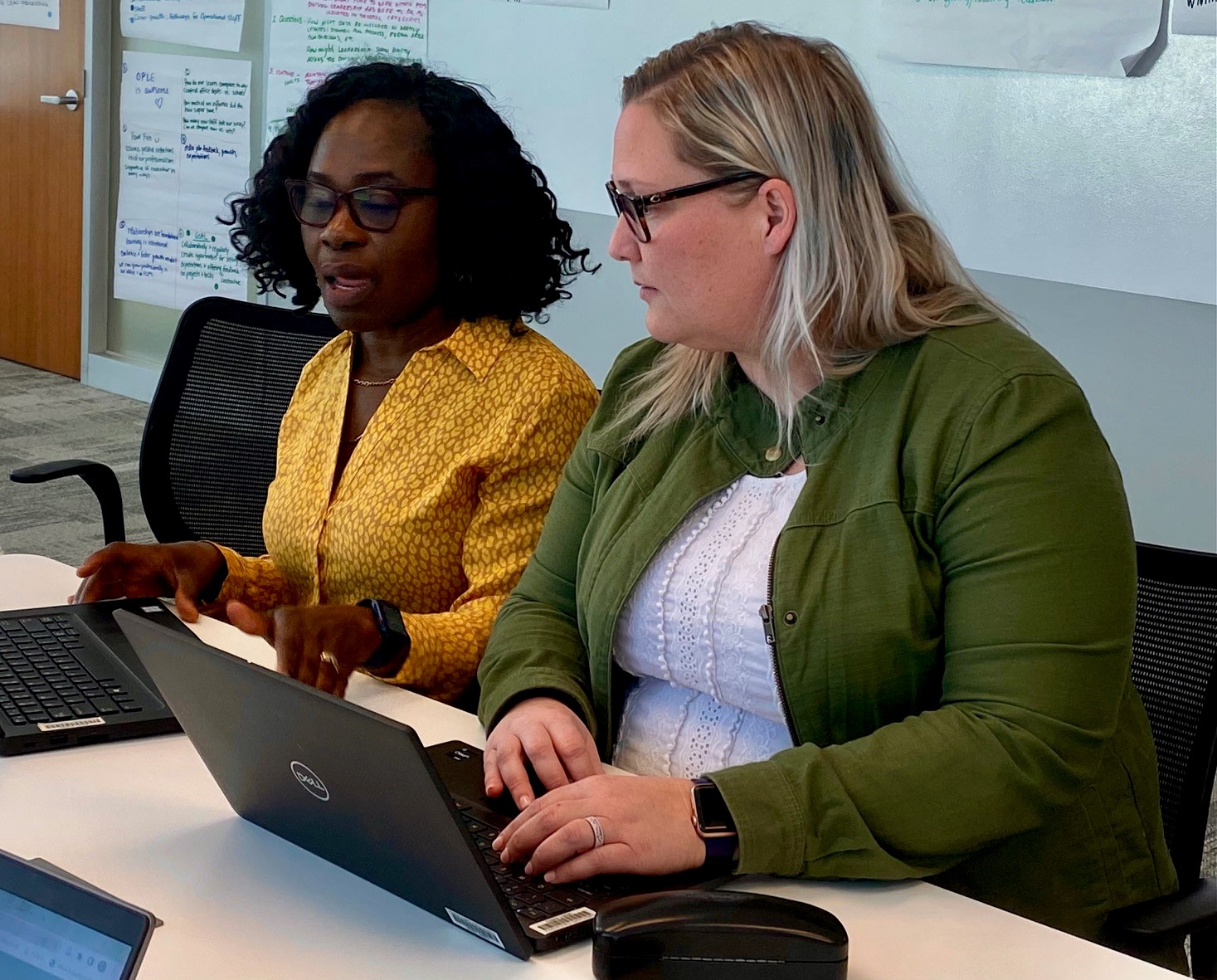
“It is critically important that we build a community with teachers and parents and ensure that we design a curriculum to meet their needs that is both flexible and individualized,” she said.
“There are so many of these incredible kids out there. If we catch these children early and give teachers the tools to identify them and effectively educate them, then they can soar and show their talents. They have so much to offer the world.”
Along with Rubio, a former special education teacher at Frost Middle School who returned to FCPS in November, the trio are committed to providing wide scale professional development and guidance to our teachers across all grade levels.
Once teachers and school administration understand how to better identify and support this population of students, the hope is that outcomes will improve, and no student will be held back because of disability.
School Board chair Rachna Sizemore Heizer was the driving force behind the creation of both Haynor’s role and Oladimeji’s position.
A long time advocate, and a mother of a neurodiverse child, she wants FCPS to become a beacon in this field - a focus she feels is long overdue.
“This is about changing commonly held negative assumptions about neurodiverse students which too often hold children back,” she said.
“We have a unique moment in time to disrupt what has historically led to poor outcomes such as high unemployment and isolation for these students. It is time to adapt, understand and value different forms of communication and different lived norms, and my hope is that other school divisions start to show an interest in our work and follow our lead.”
FCPS provides multiple resources for families interested in exploring neurodiversity.
- Find out more about dyslexia and our work in this field.
- Find out more about twice exceptional learners and how FCPS can help you support your child.
In addition, on Friday April 28 at 10 a.m., Kristen Haynor is hosting a webinar for high school families of neurodiverse students. Topics for discussion will include: strategies to set your child up for success; how to advocate for your child; and tools for collaborating with your child’s school. Registration is encouraged.
